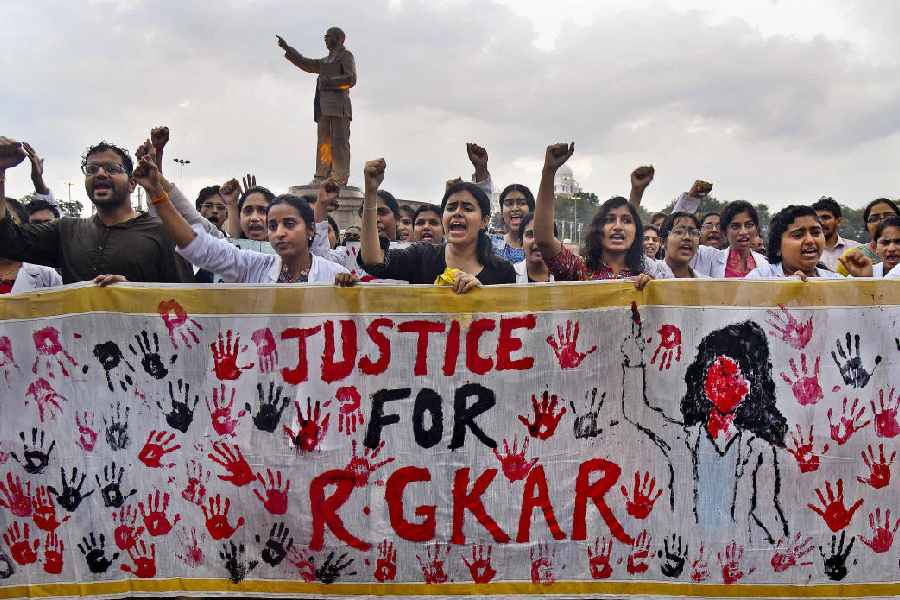A 12-point plan recommended by the Union health ministry to central government hospitals across India to improve their security and working conditions has prompted sections of doctors to ask whether the ministry will back its proposals with the required finance.
The ministry, in a letter sent to all central government hospitals, the All India Institutes of Medical Sciences and other institutions, has called for a “comprehensive approach to security that balances accessibility with effective measures to protect patients, staff and integrity of the facility”.
The letter sent to the hospitals on Monday comes amid the nationwide protests by resident doctors, triggered by the rape and murder of a junior doctor at the RG Kar Medical College and Hospital in Calcutta.
The Indian Medical Association, the country’s largest body of doctors, and senior doctors in corporate hospitals have also lent their support to the protests intended to nudge the Centre into taking steps towards new legislation to curb violence againsthealthcare workers.
The ministry, in its letter, has asked the hospitals to deploy adequate numbers of well-trained security guards, maintain sufficient counts of high-resolution CCTV cameras, and display relevant provisions of state laws to prevent violence against healthcare workers, among other actions.
The letter has also urged hospitals to maintain adequate numbers of well-secured duty rooms with basic amenities for female healthcare workers, arrange secured transport for lady healthcare professionals for any movement at night, and maintain patient coordinators to assist and guide patients.
But sections of faculty in government hospitals and other doctors have said some of the measures listed by the health ministry are actions that most public hospitals would be expected to take anyway to the best of their capacities.
A faculty member at an All India Institute of Medical Sciences said the lack of dignified work and rest spaces for female doctors has long been viewed as an issue.
“In AIIMS and other government hospitals, there is an absence of separate duty rooms and washrooms for female residents,” the faculty member wrote in a message circulated among faculty.
“Without extra finance or resources, public hospitals are unlikely to be able to implement the measures the health ministry has recommended,” said K.V. Babu, an ophthalmologist in Kannur, Kerala, who had filed a Right to Information Act query in Kerala asking about hospitalsecurity measures.
The answer to his RTI query suggested that public hospitals depended on local bodies and so-called hospital development committees to pay for the security services.
“The challenge is that maintaining high-efficiency and professional security services is expensive — and many public hospitals are unlikely to have the resources for this,” Babu said.
Resident doctors say the lack of infrastructure or resources in government hospitals often become the trigger for violence.
Resident doctors often “face the wrath” of patients or their relatives when beds or medicines aren’t immediately available, said a member of the Federation of the All India Medical Association, a body that represents postgraduate doctors.











